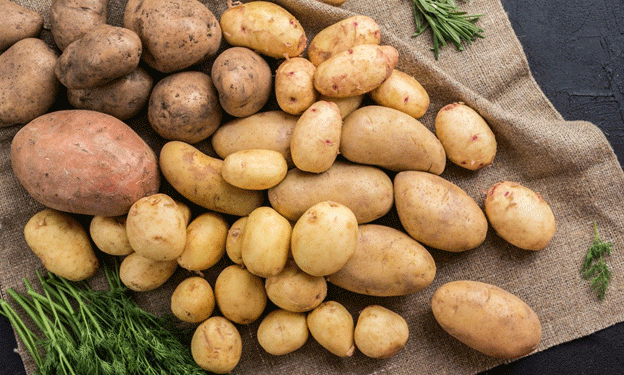As potato yields face a downward trend in Russia due to unfavorable weather and reduced planting areas, the country is exploring new import strategies to meet growing consumer demand. Dmitry Leonov, Deputy Chairman of the Rusprodsoyuz Association, recently outlined potential sources for increased potato imports, highlighting Egypt, Azerbaijan, and China as key partners.
2024 Potato Import Plans
Between January and April 2024, Russia imported 56.9 thousand tons of food-grade potatoes. Egypt dominated these imports, accounting for an impressive 85.3% of all foreign potato deliveries, followed by notable contributions from Azerbaijan, China, and Pakistan. The decision to ramp up potato imports aligns with Vice Premier Dmitry Patrushev’s directive to the Ministry of Economic Development and the Ministry of Agriculture, instructing them to secure partnerships with “friendly” nations for agricultural trade.
The decision to import is driven by the expectation of reduced domestic harvests. In 2023, Russia’s potato yield set a record at over 8.5 million tons. However, due to adverse weather conditions, the 2024 harvest is projected to drop to 7.3 million tons. While this level is comparable to harvests in 2021 and 2022, it represents a substantial decrease from last year’s peak.
Key Potato Import Sources
- Egypt: As the leading supplier, Egypt’s arid climate allows for consistent potato production, enabling year-round exports. Egyptian potatoes are prized for their size and suitability for various culinary uses, making them an attractive option for Russia’s import needs.
- Azerbaijan: With its proximity and favorable trade relations, Azerbaijan remains a reliable source of fresh produce for Russia, including potatoes. Azerbaijani farmers have been focusing on improving potato yields through advanced irrigation and pest management practices.
- China: Known for its vast agricultural output, China provides an opportunity to import high-quality potatoes and other staple crops. Chinese potato production is supported by state-led agricultural technology programs that boost both yield and quality.
- Pakistan: Emerging as a new player in the export market, Pakistan has significantly expanded its agricultural sector, and potatoes are a growing part of its export portfolio. The country’s strategic position and access to major shipping routes make it an advantageous partner for Russia.
Addressing Market Volatility
The fluctuations in potato yield and supply have led to notable price variations. In early 2024, wholesale potato prices in Russia doubled compared to the previous year. This sharp increase reflects both the reduced 2024 harvest forecast and the memory of last year’s surplus, which saw farmers selling below production costs. Analysts warn that without timely intervention through imports, the market could face further instability.
Yet, the situation may not be as dire as it seems. Some experts believe that unreported reserves held by smaller-scale farmers could be released to the market when prices peak, helping to alleviate shortages. Still, imports from established agricultural exporters remain a crucial safeguard against potential deficits and price hikes.
While Russia’s 2024 potato yield may fall short of record levels, strategic import partnerships with Egypt, Azerbaijan, China, and Pakistan are expected to help stabilize supply and manage prices. By diversifying its sources, Russia aims to cushion the impact of domestic agricultural challenges and ensure the availability of this staple crop. Continued investments in both domestic and international agricultural trade will be key to sustaining food security.







